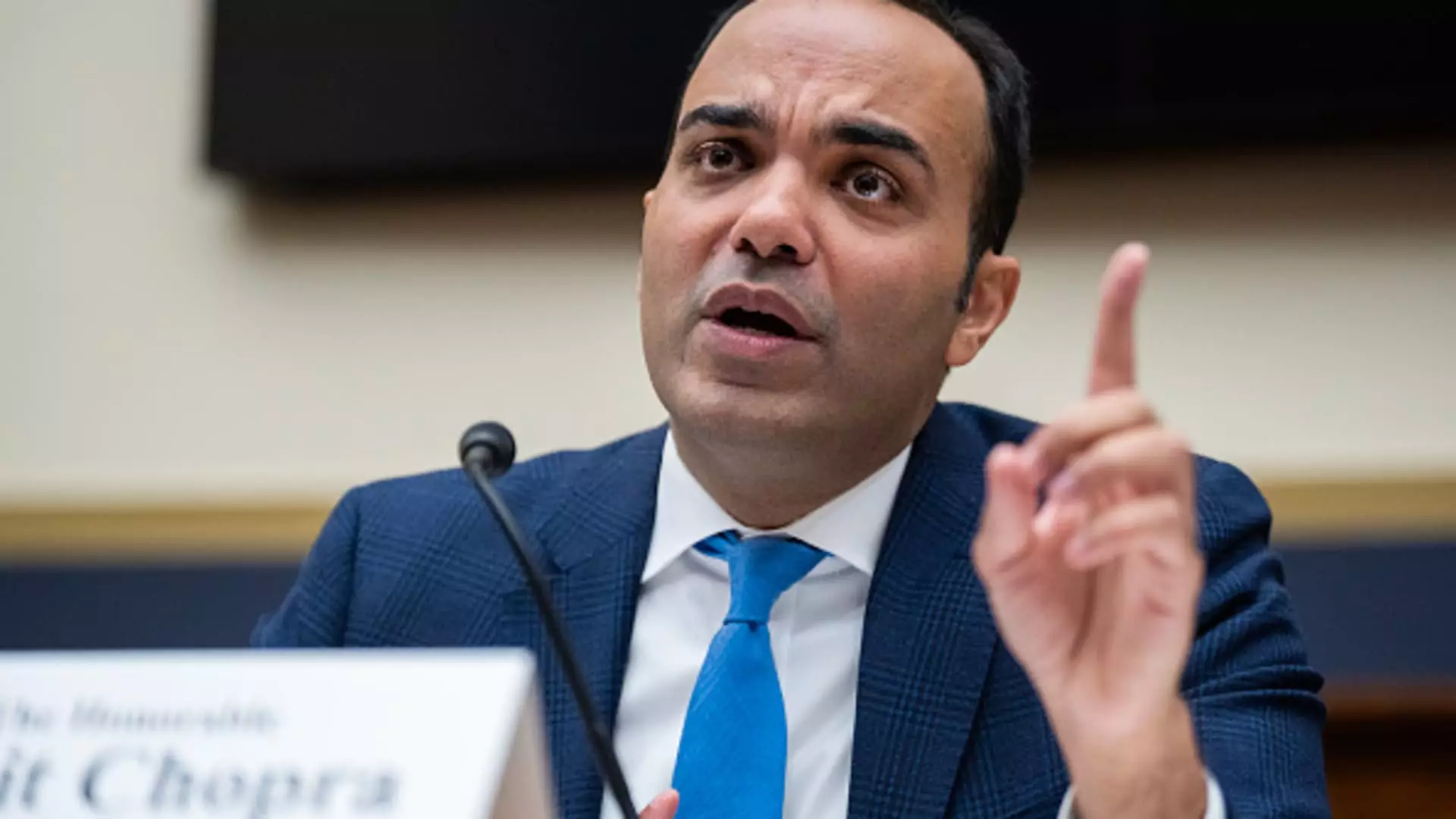Transforming Overdraft Fees: A New Dawn for Consumers

In a significant move reflecting a shift in regulatory oversight, the Consumer Financial Protection Bureau (CFPB) has officially introduced a rule aimed at curtailing the exorbitant overdraft fees that American banks have historically imposed on consumers. Announced this past Thursday, the rule seeks to alleviate the financial burden on millions of Americans, projecting annual savings of up to $5 billion. Such a monumental revision to banking policy marks an essential step in protecting consumers from systemic exploitation, especially during periods of economic strain when accessing one’s funds becomes critical.
A primary aspect of the new rule is the reduction of overdraft fees from an average of approximately $35 per transaction to a maximum of just $5. In practical terms, consumers facing accidental overdrafts on their accounts will no longer have to suffer such exorbitant charges, incentivizing responsible banking behaviors while decreasing the opportunity for predatory practices.
The Historical Context of Overdraft Fees
Overdraft fees have historically served as a lucrative revenue source for banks, amassing over $280 billion since the year 2000, according to the CFPB. However, as awareness surrounding these fees has grown, banks have begun to reevaluate their stance. Financial institutions such as JPMorgan Chase and Bank of America have either diminished these charges or restructured the types of transactions that may elicit them, with some banks opting to eliminate overdraft fees altogether.
Despite this trend, the CFPB’s rule effectively addresses the remnants of long-standing predatory exploitation imbued within the banking sector, which remains evident not only in overdraft fees but also in various other “junk fees” that impact consumers. CFPB Director Rohit Chopra emphasized the necessity of this initiative by highlighting the systemic loopholes that have allowed large banks to consistently siphon off significant sums from deposit accounts.
While the CFPB’s new rules are poised to bring relief to consumers, they face formidable opposition from banking groups. Such resistance is not without precedent; past regulatory efforts have often met with significant lobbying resistance designed to obstruct consumer-oriented reforms. For instance, attempts to set a cap on credit card late fees at $8 were relegated to federal court limbo, highlighting the potential challenges ahead for the overdraft rule.
Additionally, the rule is slated to take effect on October 1, 2025, but the political landscape raises questions about its viability. With the election of Donald Trump expected to herald a shift in leadership at the CFPB, there is skepticism about the future of this initiative. Potentially appointing an administrator who opposes the current administration’s policies could lead to further hindrances or even repeal of the rule.
Those in opposition argue that the CFPB’s overdraft regulation could decrease the accessibility of overdraft services, potentially pushing consumers toward alternatives that may be more harmful, such as payday loans. The Consumer Bankers Association has signaled their intent to challenge the rule aggressively, exploring all available avenues to counter the regulatory changes mandated by the CFPB.
However, amidst these challenges, it is essential to consider the larger picture. The need for consumer protection is paramount as economies grapple with rising living costs and the financial strains that many Americans face. Greater vigilance over the financial industry’s practices is necessary to warrant transparency and accountability, reinforcing consumer rights in banking.
The introduction of the CFPB’s overdraft fee rule is undoubtedly a turning point for the American banking landscape. By pressing for transparency and tighter regulations on opportunistic fees, the agency acknowledges the need for an evolving financial environment that prioritizes the welfare of consumers. As the industry pushes back, it is critical for stakeholders to recognize the economic realities driving these changes and to foster an environment where sound financial practices are not just encouraged but enforced. The journey toward a more equitable financial system may be fraught with challenges, but the pursuit of consumer justice is a path worth taking.





